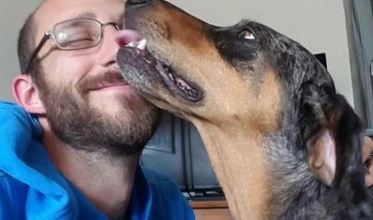
Michael Douglas reveals heartbreaking exit from acting!
After almost sixty years of captivating audiences, Michael Douglas has revealed he is stepping away from acting. At 80 years old, the two-time Academy Award winner says the decision was necessary, not because his love for the craft has faded, but because he doesn’t want his life to end on a movie set.
“I realized I had to stop,” Douglas confessed during a conversation at the Karlovy Vary International Film Festival. “I’d been working pretty hard for almost 60 years, and I did not want to be one of those people who dropped dead on the set.”
For someone who has been part of Hollywood’s DNA since the 1970s, the announcement feels like the closing of an era.
From Producer to Star
Born into cinematic royalty as the son of legendary actor Kirk Douglas, Michael Douglas did not initially follow the conventional acting path. At 31, he produced One Flew Over the Cuckoo’s Nest (1975), a daring project his father had long wanted to see adapted for the screen. The film went on to win the Academy Award for Best Picture, earning Douglas his first Oscar—not as an actor, but as a producer.
That success could have marked him as a behind-the-scenes power player, but Douglas soon made his mark on screen as well. Through the 1980s and ’90s, he emerged as a defining face of Hollywood masculinity—layered, flawed, and magnetic.
His turn as the ruthless financier Gordon Gekko in Wall Street (1987) brought him his second Oscar, this time for Best Actor. His “greed is good” mantra became a cultural touchstone, symbolizing the excesses of the era. At the same time, films like Fatal Attraction (1987) and Basic Instinct (1992) cemented his reputation as a leading man who could command psychological thrillers with both charm and menace.
Reinvention and Longevity
Unlike many actors of his generation, Douglas never allowed himself to be boxed in. He proved his versatility repeatedly, balancing Hollywood blockbusters with more intimate projects. In recent years, he surprised critics and fans alike with his performance in The Kominsky Method (2018–2021), a Chuck Lorre comedy that explored aging, friendship, and vulnerability.
“I did The Kominsky Method because I wanted to try some comedy, and I wanted to work with Chuck Lorre,” he explained. The gamble paid off—the role earned him widespread acclaim and a Golden Globe.
He also embraced modern franchises, stepping into the Marvel Cinematic Universe as Dr. Hank Pym in Ant-Man (2015) and its sequels. For younger audiences, Douglas wasn’t Gordon Gekko or Dan Gallagher—he was the brilliant but eccentric scientist guiding Paul Rudd’s superhero. “I had the experience, and I was excited to do it. I’d never done a green screen picture before,” he said.
Health Battles and Perspective
Douglas’ decision to step back is not without context. In 2010, he was diagnosed with stage 4 throat cancer, a grueling ordeal that tested his resilience. “Stage 4 cancer is not a holiday,” he once remarked. Intensive chemotherapy and radiation saved his life, though surgery would have meant losing part of his jaw—and possibly his career.
The experience left him with a renewed sense of gratitude. Surviving such a battle while continuing to work reinforced his dedication, but it also made him acutely aware of life beyond the screen.
A Family Man at Heart
For all his Hollywood glamour, Douglas often emphasizes the importance of family. Married to actress Catherine Zeta-Jones since 2000, he frequently highlights how much joy he takes in supporting her career. “I just like to watch my wife work,” he admitted with a smile.
Their marriage has weathered the spotlight for over two decades, and together they have raised two children. Douglas also shares a deep bond with his eldest son, Cameron Douglas, who has faced his own public struggles. The two recently collaborated on Looking Through Water (formerly titled Blood Knot), an upcoming film still in post-production.
That father-son project may well become one of Michael’s last appearances on screen, serving as both a creative endeavor and a personal milestone.
A Legacy Written in Film
Looking back, Douglas’ career spans genres, decades, and generations of fans. Few actors have managed to reinvent themselves as consistently as he has. From morally complex antiheroes to vulnerable older men navigating the realities of age, his characters have always reflected some facet of the human condition.
But Douglas insists he is not officially retired. Instead, he’s enjoying a hiatus, focusing on his personal life, and choosing projects only if they feel extraordinary. “I say I’m not retired, because if something special came up, I’d go back. But otherwise, I’m quite happy.”
It is a sentiment that reflects both peace and possibility. He is leaving the door slightly open but seems content to step out of the relentless pace that defined his career.
The End of an Era?
For Hollywood, Douglas’ departure signals more than the retirement of a single actor—it’s a reminder that the giants of a golden age are gradually stepping back. He belongs to a generation of performers who straddled the classic and modern eras of cinema, adapting to shifts in technology, storytelling, and audience expectations without ever losing relevance.
His influence stretches beyond acting. As a producer, he helped bring iconic stories to life. As a performer, he redefined masculinity in ways that were often uncomfortable but undeniably compelling. His voice, his presence, and his choices shaped not just his career but the broader landscape of film.
Looking Ahead
What comes next for Michael Douglas may not involve scripts or cameras. Instead, it may be quieter moments spent with family, supporting Catherine Zeta-Jones’ ongoing work, or simply enjoying the life he spent decades too busy to fully embrace.
For audiences, the absence of Douglas on screen will be keenly felt. Yet his body of work remains a towering legacy—one that will continue to inspire actors, entertain viewers, and spark debate about the roles he so fearlessly embodied.
At 80, Douglas is clear about one thing: he doesn’t want to chase Hollywood until his last breath. “I have had a very busy career. Now, I am very happy with taking the time off,” he said. “I did not want to be one of those people who dropped dead on the set.”
And perhaps that is the greatest lesson he leaves us with—not just about acting, but about life itself: knowing when to walk away, on your own terms.




